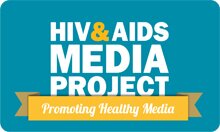Project Objectives
Specific objectives of the project are:
- To encourage and enable journalists to play an informed role of combating HIV and AIDS;
- To monitor the role and impact of the media in coverage of HIV and AIDS;
- To promote discussion and debate among journalists, editors, health professional and other key role players in this area; and
- To provide high quality academic research which ensures an informed and useful debate around this issue.
Our website, forums and publications
The project website performs several functions at once. Its main function is to provide fact sheets, documents, contacts and guidelines for those involved in the media, in an attempt to promote and facilitate healthy media. The website also provides day-by-day coverage and analysis of news stories and media representations concerning HIV and AIDS.
The project periodically hosts media forums. Here a particular HIV-related topic is chosen, and members of the public are invited to witness and participate in a discussion in which various representatives of certain media outlets (print media, online publications, soap opera producers) and HIV-concerned organisations (NGOs, human rights groups) discuss and debate the topic and how it is being covered in the media. The conclusions drawn from these discussions are summarised and presented on the project website.
We have published various booklets and documents over the years, and in 2010 the project released a compilation of the journalism and research it has produced since 2003, titled: “What is left unsaid, Reporting South Africa’s HIV epidemic.” You can review all the project’s publications here.
We have partnered with a number of organisations such as the Nelson Mandela Foundation, SA National Editors’ Forum, Media Monitoring Africa and the Children’s Institute in areas such as discussion forums, research and analysis of media content.






